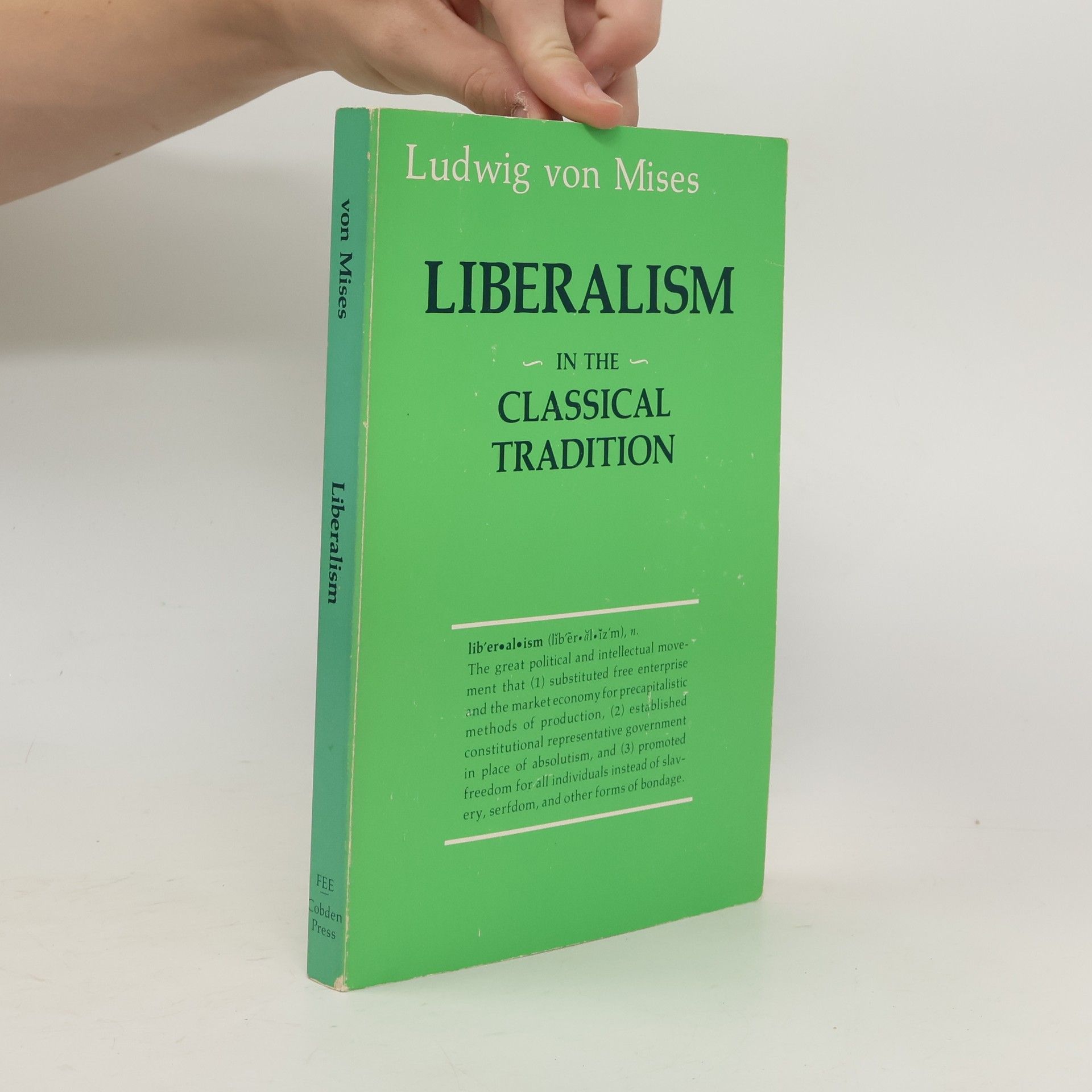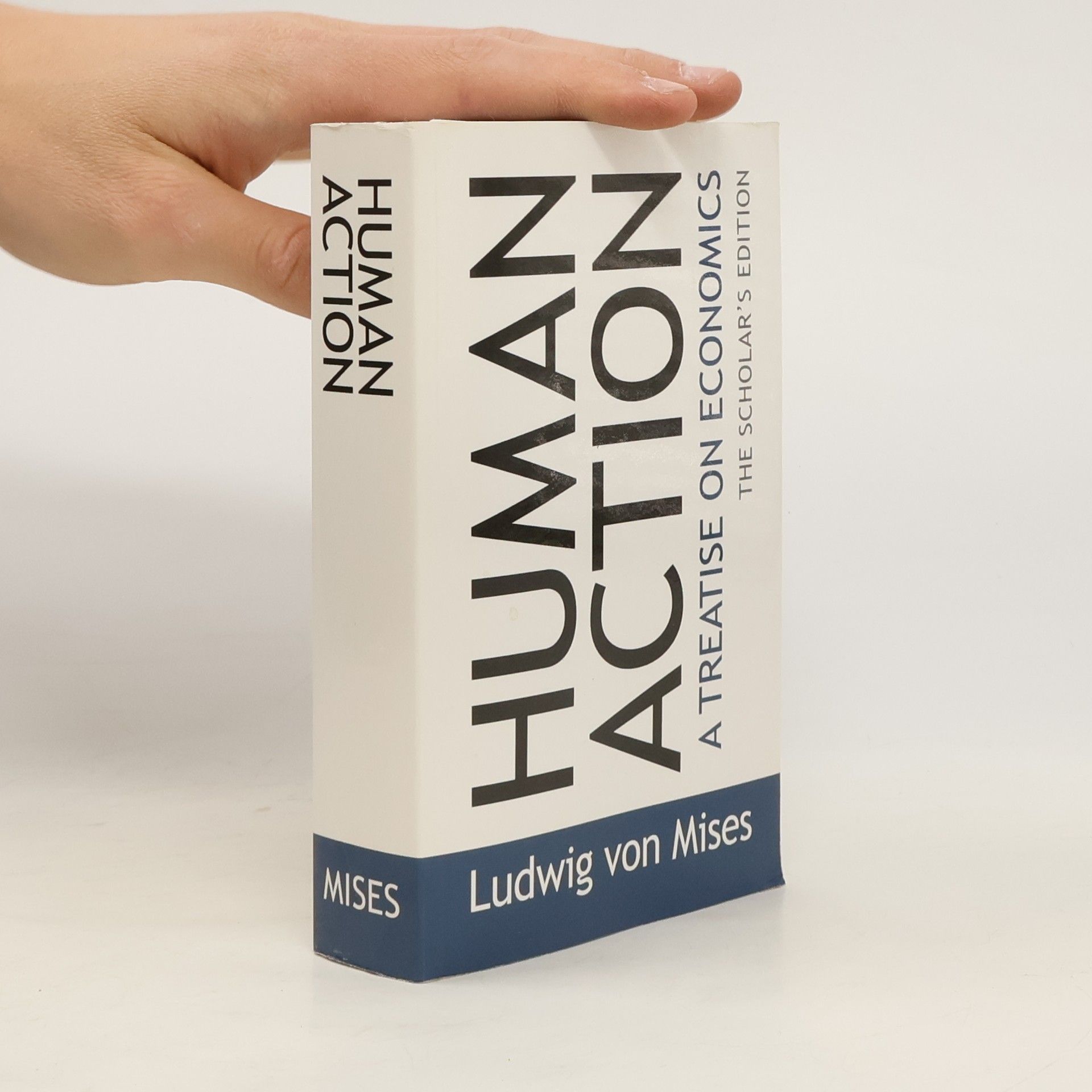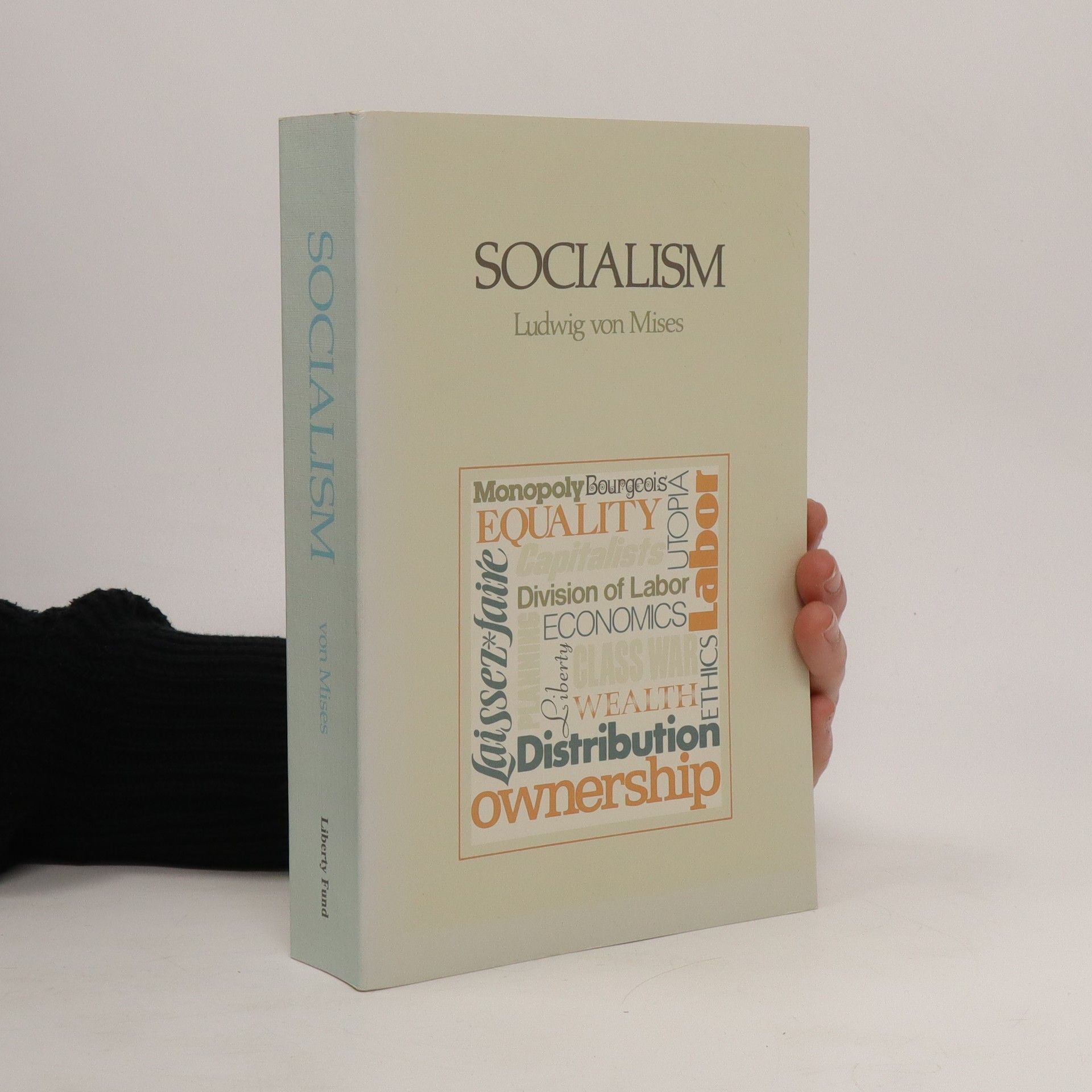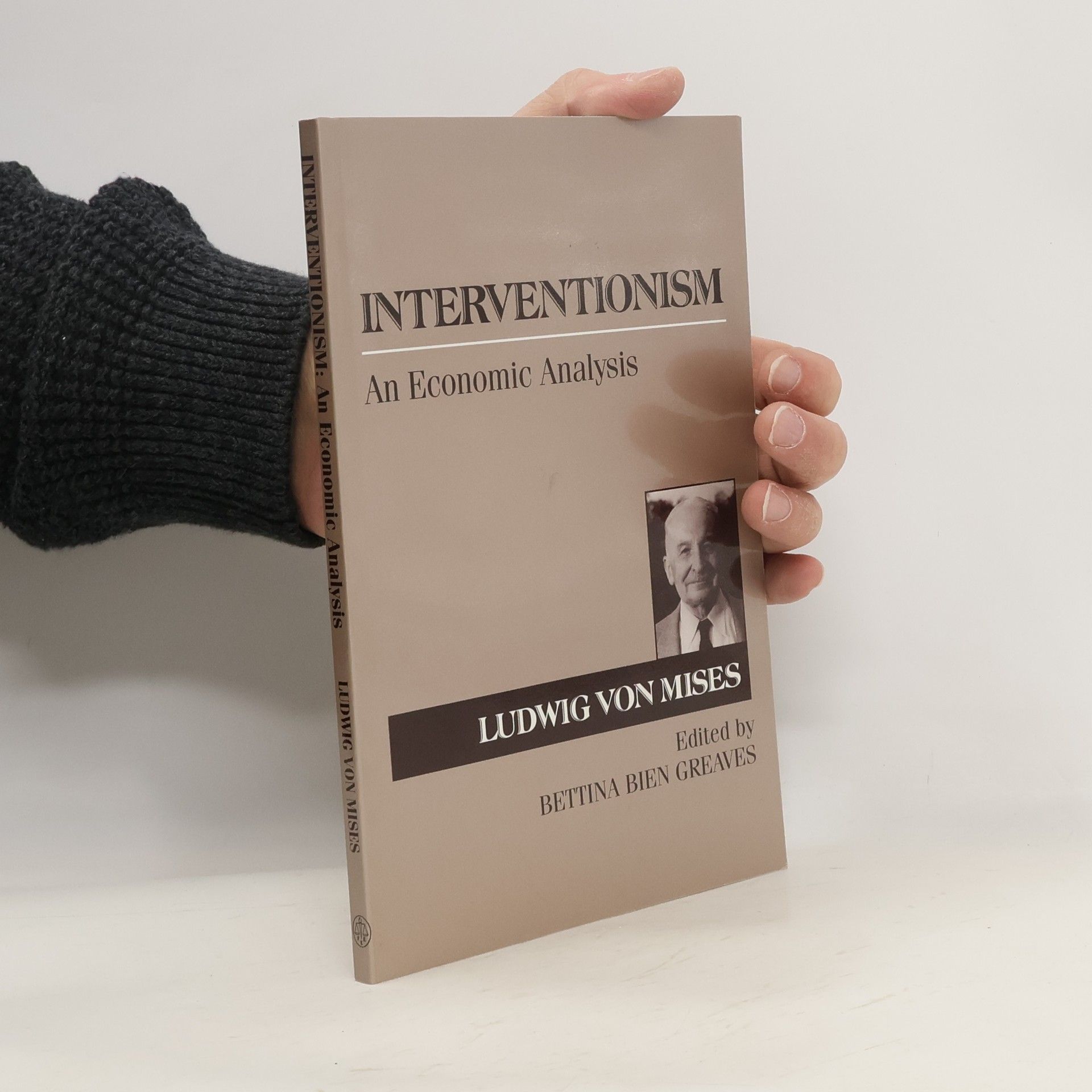Human Action. A Treatise on Economics. Vol. 1-4
- 1037bladzijden
- 37 uur lezen
Ludwig von Mises was een vooraanstaand Oostenrijkse econoom en filosoof wiens werk de Oostenrijkse School van Economie en de moderne vrije-marktbeweging fundamenteel heeft gevormd. Zijn intellectuele bijdragen richtten zich op de rigoureuze toepassing van economisch redeneren om maatschappelijke dynamiek en beleidsuitkomsten te begrijpen. Mises verdedigde de principes van economische vrijheid en gezond geld, en onderzocht hun vitale rol bij het bevorderen van welvaart en individuele vrijheid. Zijn geschriften blijven essentieel voor het begrijpen van de theoretische grondslagen van het klassiek liberalisme en de blijvende relevantie ervan.







Shortly after arriving in the United States, having fled a war-torn Europe, Ludwig von Mises sat down to complete his trilogy on economic systems. The result was this remarkably concise treatise, which tragically was not published until 1998. What Mises had foreseen was a world trapped between fully planned economies, which were clearly failing, and fully free markets, which were a casualty of depression and war. He warned that mixed systems give rise of political instability and economic stagnation, and proved that this was the case through a general model of interventionism and a specific analysis of price control, credit expansion, subsidies, welfare, corporatism, and the war economy. Particularly interesting is his discussion of the draft, which he sees as a species of socialism itself. A crucial book to understand in the post-socialist age. This book is not to be confused with his earlier book on price control entitled A Critique of Interventionism.The contents of this volume Introduction 1. The Problem 2. Capitalism or Market Economy 3. The Socialist Economy 4. The Capitalist State and the Socialist State 5. the Interventionist State 6. The Plea for Moral Reform I. Interference by Restriction 1. The Nature of Restrictive Measures 2. Costs and Benefits of Restrictive Measures 3. The Restrictive Measure as a Privilege 4. Restrictive Measures as Expenditures II. Interference by Price Control 1. The Statutory Law Versus Economic Law 2. The Reaction of the Market 3. Minimum Wages and Unemployment 4. The Political Consequences of Unemployment III. Inflation and Credit Expansion 1. Inflation 2. Credit Expansion 3. Foreign Exchange Control 4. The Flight of Capital and the Problem of "Hot Money" ISBN 1572460717 93 pp. (pb)
"Translated from the second German edition (published 1932) of the author's Die Gemeinwirtschaft."
Reprint. Originally published: New Haven: Yale University Press, 1949 [c1949].
This book presents the theoretical and practical arguments for liberalism. Mises contrasts liberalism with other conceivable systems of social organization such as socialism, communism, and fascism. He is also more specific here than elsewhere in applying the liberal program to economic policy, domestic and foreign.
The Theory of Money and Credit integrated monetary theory into the main body of economic analysis for the first time, providing fresh, new insights into the nature of money and its role in the economy and bringing Mises into the front rank of European economists. The Theory of Money and Credit also presented a new monetary theory of the trade cycle, which, under further development by Mises’s student Nobel Laureate F. A. Hayek, came to challenge all previous trade-cycle theories. Ludwig von Mises (1881–1973) was the leading spokesman of the Austrian School of economics throughout most of the twentieth century. Please note: This title is available as an ebook for purchase on Amazon, Barnes and Noble, and iTunes.
2009 Reprint of original 1956 edition. Paperback, 114pp. Mises wrote and lectured extensively on behalf of classical liberalism and is seen as one of the leaders of the Austrian School of economics. Mises introduced praxeology as a more general conceptual foundation of the social sciences and established that economic laws were only arrived at through the means of methodological individualism firmly rejecting positivism and materialism as a foundation for the social sciences. Many of his works were on two related economic themes:1. Monetary economics and inflation; 2. The differences between government controlled economies and free trade.
Booms and busts are not endemic to the free market, argues the Austrian theory of the business cycle, but come about through manipulation of money and credit by central banks. In this monograph, Austrian giants explain and defend the theory against alternatives. Includes essays by Mises, Rothbard, Haberler, and Hayek. In his later years, Professor Haberler distributed many of these monographs to friends and associates. New edition with an introduction by Roger Garrison and an index.
We can't sit under Mises at his famous Vienna private seminar. We can't go back in time and attend his New York seminar, or follow him to his speaking engagements that he held in the 50s and 60s. But thanks to this second volume in a thrilling series (here is volume one), we do have access to what he said. He is warm, funny, passionate, and learned. This book provides a candid look at the man and his teaching style. It demonstrates his dazzling command over the material, and teaches in a breezier way than his treatises. This volume contains nine lectures delivered over one week, from June 23, to July 3, 1952, at the San Francisco Public Library. Mises was at his prime as a teacher and lecturer. He shares a lifetime of learning on topics that were (and remain) central to American public life. As the title indicates, his main focus is on Marxism. He discusses Marx and his place in the history of ideas, the destruction wrought by his dangerous ideology, the manner in which his followers h